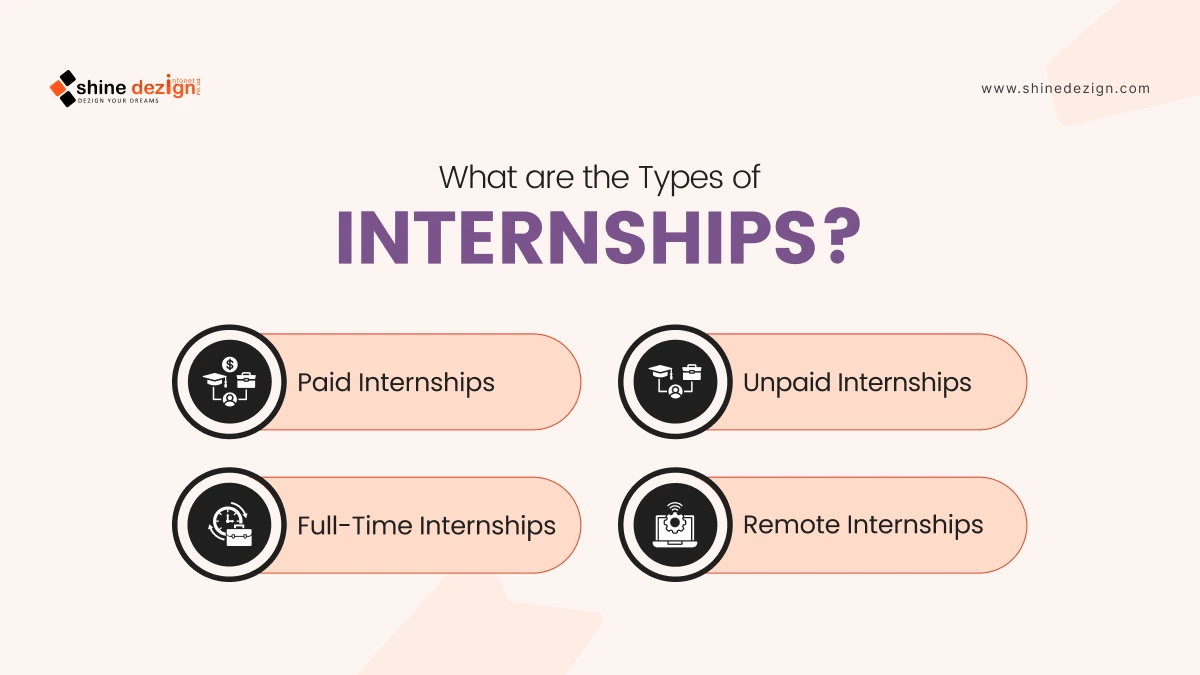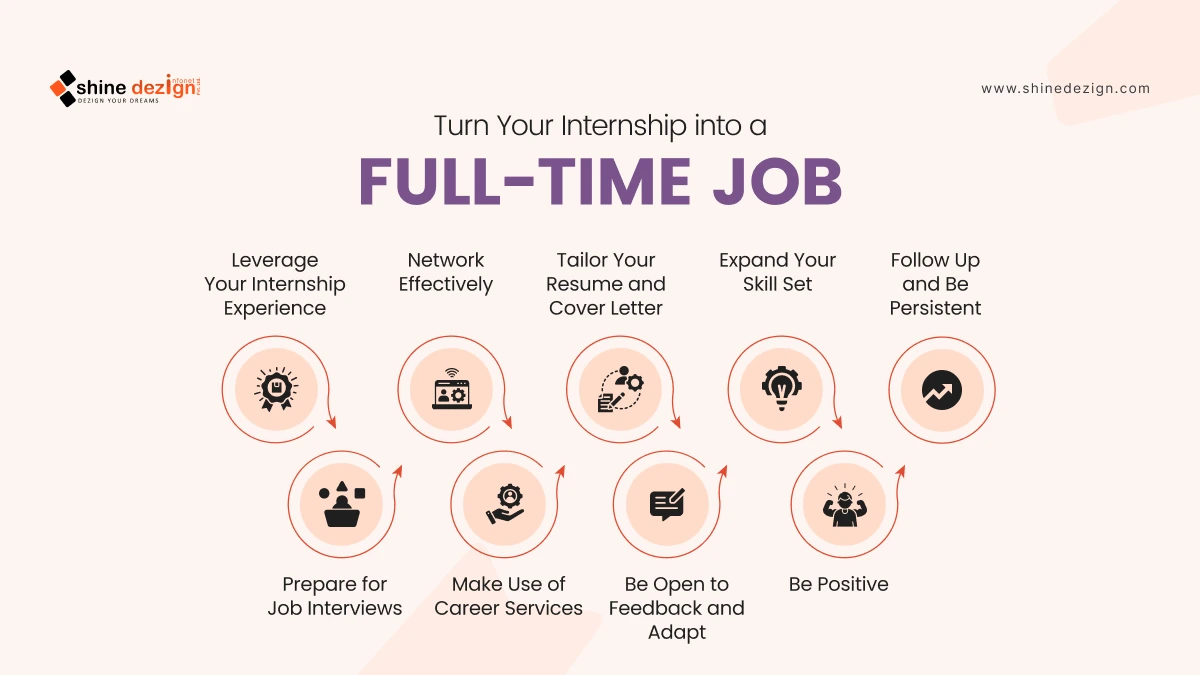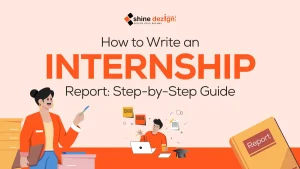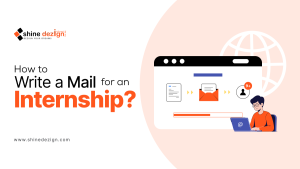Internships have always been considered the in-between period from academics to the actual professional world.
Internships provide one with very precious experience, exposure, and a chance to showcase themselves in front of employers.
However, not everyone who is transitioning from an internship to a permanent job is sure of receiving one.
In this comprehensive guide, we are going to figure out some of the ways in which you can increase your chances of a job offer by the time your internship period comes to an end.
What is the Role of Internships?
Internships fulfill multiple functions. They allow you to put theoretical knowledge into practice, gain industry-specific knowledge & learn work environment dynamics.
Further, internships make your resume stronger, resulting you as a more suitable candidate for future job openings.
As indicated by a survey conducted by the National Association of Colleges and Employers (NACE), 64% of interns receive job offers from the companies where they have interned.
What are the Types of Internships?
There are various types of internships like:

Paid Internships
Paid internships provide monetary compensation, which can be helpful to students who need to support themselves. Paid internships also reflect that the organization gives importance to the work performed by interns & is more inclined to hire them full-time.
Unpaid Internships
Even though these internships are not monetarily beneficial, they are nonetheless a chance for worthwhile experience & networking. However, one should ensure that the internship does not breach labour laws & is of educational significance.
Full-Time Internships
Full-time internships involve a time commitment of 30-40 hours of work weekly & usually run for several months. Full-time internships can give you a holistic experience, and you know the company culture & business better.
Remote Internships
As working remotely is gaining popularity, companies now provide virtual internships. These may offer flexibility & the ability to work with companies based anywhere in the world.
What are The Advantages of Internships?
The main advantages of internships are:
Real-Life Experience:Internship enables you to apply your theoretical knowledge to real-world workspace, giving you real-life experience.
Networking Opportunities: Internship provides an opportunity for networking with individuals in the field, which can be converted into job opportunities & useful contacts.
Skill Development: You are able to acquire new skills & sharpen the old ones, thus making yourself more appealing to the job market.
Resume Building: Internship in your resume shows enthusiasm & commitment towards your career.
Learning Business Culture: Internship provides an opportunity to feel the work culture & environment of an organization so that you can decide if it will be appropriate for you or not.
What is a Full-Time Internship?
Full-time internships make the way for full-time employment. Full-time internships are a 30-40 hours per week commitment, typically for a period of several months. An obligation of that length gives you an exposure to company operations & culture. Most companies use full-time internships as a way of filtering prospective employees. If you perform, you stand a very good chance of being made a full-time job offer at the conclusion of your internship.
What are the Benefits of Full-Time Internships?
Benefits of full-time internship:
Sustained Exposure: Full-time internships entail a greater appreciation of the business & how things function. You will have the opportunity to be a part of large-scale projects and work with various teams.
Networking Opportunities:A full-time schedule offers a chance to network with managers & coworkers, so you will be hired more readily.
Skill Development:Internships which are full-time usually comprise greater responsibility, enabling you to develop a more well-rounded skill set & possibly acquire valuable experience which will make your resume more attractive.
Turn Your Internship into a Full-Time Job

1. Leverage Your Internship Experience
Your internship is a one-time chance to impress. Here is how to go about it: Highlight Your Successes:
Put Your Achievements Down on Paper:Record your projects, tasks & any quantifiable results. For instance, if you managed a marketing campaign, record the rise in engagement or sales.
Create a Portfolio: If feasible, create a portfolio of your work, i.e., designs, presentations, or reports. This tangible evidence of your work can be a great help during job interviews.
Ask for Feedback:Make an effort to ask your supervisors & colleagues for feedback occasionally. Not only does it enhance you but also indicates that you are willing to enhance yourself.
Ask for Letters of Recommendation:Ask your supervisor for a letter of recommendation at the end of your internship. A good recommendation can go a long way in improving your job prospects.
2. Network Effectively
Networking is probably the most significant thing to do in securing a job offer after your internship. The following are some tips in creating & nurturing your professional network:
Attend Workshops and Conferences: Attend conferences pertaining to your field so that you meet professionals & get aware of the latest trends. Interacting can make you leave a lasting impression.
Join Professional Associations:Being a member of professional associations can provide you with access to exclusive networking & knowledge.
Connect on LinkedIn:Make a professional LinkedIn profile and connect with colleagues, managers & industry experts. Share helpful content & interact with others to get noticed more.
Join Appropriate Groups:Join LinkedIn groups that are appropriate to your career. Engaging in group discussions can make you a recognized expert.
3. Tailor Your Resume and Cover Letter
Once you are applying for work after the internship, you must tailor your application materials in order to highlight your relevant experience & skills:
Highlight Relevant Skills (Use Keywords): Study job postings & include the relevant keywords in your resume & cover letter. This can ensure your application gets through applicant tracking systems (ATS).
Highlight Soft Skills:Apart from technical skills, highlight soft skills like communication, teamwork, and analytical skills. These are generally as important to potential employers.
Highlight Tangible Outcomes: Wherever possible, utilize numbers to place your contribution into perspective. For instance, rather than stating, “I contributed to a marketing campaign,” state, “I contributed to a marketing campaign which resulted in a 25% increase in traffic to the website within three months.” Not only does this verify your contributions but also gives prospective employers some notion of what you could contribute to the firm.
Make Your Cover Letter Personal:Your cover letter must complement your resume by placing your experience in context. Use it to narrate a story about a particular project or problem you encountered in your internship & how you overcame it. This will differentiate you from other candidates.
4. Expand Your Skill Set
Lifelong learning is the standard in the competitive job industry of today. Here are some of the ways you can maximize your skills during and even after your internship:
Online Courses:Take online courses that provide certification in your profession. Internship programs such as Shine Dezign Internship Program contain numerous courses you can use to learn new things & gain new skills.
Industry-Specific Training:Look for professional association training sessions or workshops in your industry. These will likely provide you with practical information & skills that you can immediately use in your career.
Keep Up to Date with Industry Trends:Read industry blogs & newsletters that cover trends and developments in your field of work. Being up to date will not only make you a more knowledgeable professional but will also give you discussion points in an interview.
Join Professional Associations:Being a member of professional associations could provide access to resources, networking & professional development opportunities.
5. Follow Up and Be Persistent
Looking for work takes determination. Here are a few pieces of advice about how to stay determined:
Stay in Touch with Your Network:After finishing your internship, stay connected with your managers & colleagues. Send them a follow-up of your job search & inform them that you would welcome the opportunity to hear about any future vacancies that arise.
Follow Up After Interviews:After a job interview, write the interviewer a thank-you letter after the interview to thank the person for his or her time. Not only is this professional, but it also keeps you in the interviewer’s mind as well.
Continue Applying:Don’t limit your applications to just one job. Apply for several jobs that are suitable for your qualification & interest. Each application & interview will help you in sharpening your approach & build confidence.
Be Open to Other Opportunities: Sometimes the ideal job may be something you hadn’t considered. Be willing to consider other jobs or organizations that can provide good experience & development.
6. Prepare for Job Interviews
After getting the interview calls, preparation is the key. Following are some of the tips that can ensure success:
Understand the Company Culture:Find out about the values, mission & culture of the company. This will allow you to specifically tailor your answers & show how you will fit within the organisation.
Know the Industry:Obtain information on the industry trends & problems that are faced by the company. It will enable you to make positive contributions while discussing in the interview.
Practice Standard Interview Questions:Practice behavioural interview questions in which you are required to provide examples of how you handled a particular situation. Answer in the STAR format (Situation, Task, Action, Result).
Technical Questions:Wherever relevant, prepare technical ideas pertaining to your business line. Have your knowledge & problem-solving skills at your fingertips.
Dress Professionally:Wear professional, company culture-appropriate clothing. If in doubt, it’s always better to be slightly overdressed than underdressed.
Send a Thank-You Note:Send a thank-you note after the interview to express thanks for the opportunity to interview. Not only is it a mark of professionalism but also reiterates your interest in the position. In the note, you can briefly mention one particular issue discussed in the interview to personalize your message.
7. Make Use of Career Services
If you are still in college or a recent graduate, utilize your college’s career services. They can be a tremendous assistance in securing work.
Resume & Cover Letter Reviews:Career offices usually provide resume & cover letter critiques. Take advantage of this to render your application materials effective & refined.
Mock Interviews:Conduct mock interviews to brush up on your responses & get constructive feedback. This can make you confident & ready for actual interviews.
Attend Job Fairs:Job fairs are usually organized by universities where you can interact with prospective employers. It is an ideal platform to network & get information on job openings.
Workshops and Seminars: Workshops are regularly conducted on a range of topics, e.g., networking, job search & interview skills. Attend to develop your skills & knowledge.
8. Be Open to Feedback and Adapt
Taking feedback is a vital aspect of professional development. Here is how to welcome it:
Seek Constructive Criticism:Towards the end of your internship, request feedback from your supervisor regarding your performance. Knowing your strengths & weaknesses can assist in developing & shaping you for challenges ahead.
Be Open-Minded:While you embrace criticism, do not become defensive. Instead, see it as a chance to learn & improve.
Change Your Job Search Strategy:If your job listings are drawing no responses, then something in your resume, cover letter, or job search method has to be altered. Request mentors or career advisors to provide you with some tips on where and how you should make improvements.
Be Flexible:The employment sector is unpredictable. Be willing to try other jobs or industries that you never thought of. You might discover new interests & opportunities.
9. Be Positive
It can be difficult & discouraging at times to search for employment. Following are some tips on how to stay positive:
Divide Your Goals: Rather than just looking for a job, create short & achievable goals, i.e., applying for a specific number of job listings per week or going to a specific number of networking events.
Celebrate Small Wins:Acknowledge & celebrate your success, regardless of whether it is acquiring a new certification, compliments, or getting an interview.
Take Breaks:Job searching can be demoralizing. Make sure you take breaks & engage in activities which unwind and refresh you.
Stay Connected:Remain close to supportive friends & relatives who will offer you encouragement & motivation while you are on the hunt for a job.
Conclusion
It takes a bold & strategic plan to convert an internship into a job offer. Utilizing your internship, networking, tailoring application materials, building your skill set & following up relentlessly can greatly increase your prospects of gaining a job offer. Remember, internships are not merely a stepping stone but a great chance to get yourself positioned before potential employers.
Grab the experience, learn from it & build it as a platform for your career. With hard work & the correct attitude, it is possible for you to convert your internship into a successful full-time career, positioning you well for a successful career in the future.
Your questions, our answers
Full-time internships involve a time commitment of 30-40 hours of work weekly & usually run for several months. Full-time internships can give you a holistic experience, and you know the company culture & business better.
Make a professional LinkedIn profile and connect with colleagues, managers & industry experts. Share helpful content & interact with others to get noticed more.
Various internships are paid internship and unpaid internship, full time internships, online internships and remote internships.
It provides real world experience, chance to work on live projects, problem solving capabilities and enhance your skills.













